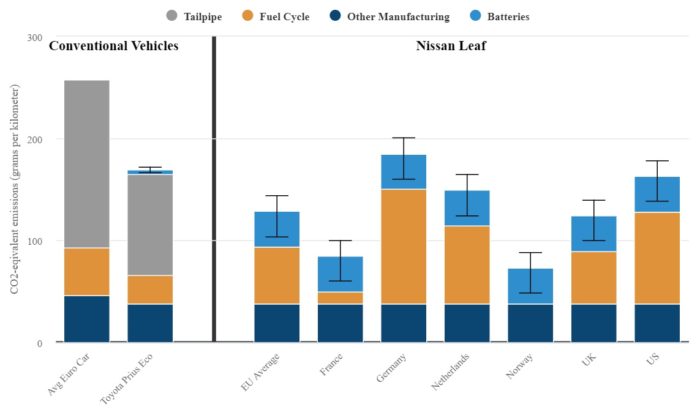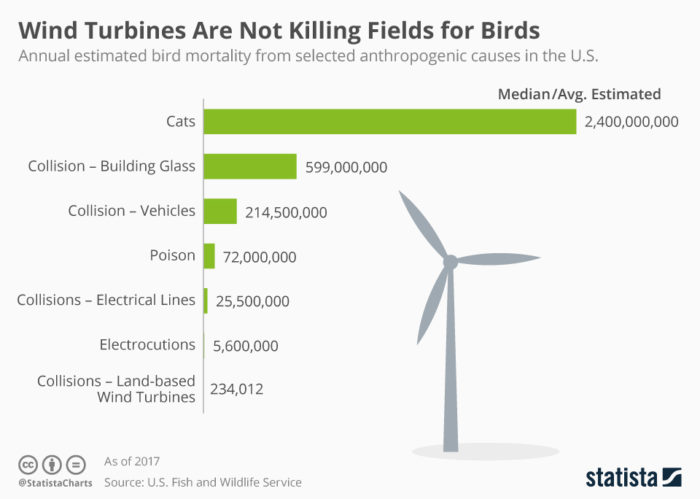Jan
07
2020
 Arguments about which technology is the most energy and carbon efficient over their entire lifetime are good ones to have. This is where the conversation should be focusing, not rehashing questions that are not currently scientifically controversial. But the debate about life cycle efficiency is complex, and often gets abused or misunderstood. We face these questions from biofuels to solar, wind energy, and all-electric vehicles.
Arguments about which technology is the most energy and carbon efficient over their entire lifetime are good ones to have. This is where the conversation should be focusing, not rehashing questions that are not currently scientifically controversial. But the debate about life cycle efficiency is complex, and often gets abused or misunderstood. We face these questions from biofuels to solar, wind energy, and all-electric vehicles.
With regard to electric vehicles, for example, it is not enough that they do not emit carbon from a tailpipe. We have to consider the energy used and carbon released during the entire manufacturing process, including sourcing the raw material. We also need to consider the source of energy used to charge the vehicle, and what happens to the battery at the end of its lifetime. This is a difficult assessment to make, and every study that attempts to do so must make a number of assumptions which affect the outcome.
The result is many studies with a range of outcomes based on different techniques and assumptions used. This is a common situation in science, and what is typically done is to look at the full range of study outcomes, which should follow somewhat of a bell curve of results, and see where the peak is. It does not make sense to rely upon individual studies that are out by either tail – these are literally outliers. So bottom line – what do these studies show? They indicate that over the entire lifetime of an electric vehicle, under most driving conditions, they produce less carbon than an average gas vehicle, and hover around the efficiency of a gas-electric hybrid. The greatest individual determining variable is the source of the electricity (“fuel cycle” in the chart).
Continue Reading »
Jan
06
2020
 How do memories work? That has been a burning question for over a century, since Richard Semon introduced the term “Engram” in the early 20th century as the fundamental unit of memory in the brain. I should say, that is how long the question existed in its modern neuroscientific form. Thinking about the nature of memory goes back to the early Greek philosophers. In fact we have evidence that they figured out pretty quickly that the brain was central to cognitive function:
How do memories work? That has been a burning question for over a century, since Richard Semon introduced the term “Engram” in the early 20th century as the fundamental unit of memory in the brain. I should say, that is how long the question existed in its modern neuroscientific form. Thinking about the nature of memory goes back to the early Greek philosophers. In fact we have evidence that they figured out pretty quickly that the brain was central to cognitive function:
Yet an important development in Hellenistic medicine should not remain unmentioned: the discovery, by the Alexandrian anatomists Herophilus and Erasistratus (late fourth/early third century BCE), of the nervous system, of the central role of the brain in cognition and locomotion and the observation, by Herophilus, of the various ventricles within the brain.
Of course, the ancient philosophers also thought that we had souls and that memory and thinking were fundamentally a process of the soul. But the soul had to live somewhere in the body, and to interface with the physical body, and early observations suggested it lived in the brain. This debate carried forward to Medieval times. In the time of the great physician, Galen, the primary debate was whether or not the memories of the soul lived in the heart (cardiocentric view) or the brain (encephalocentric view). Galen himself took the encephalocentric view, that memories and reason are in the brain, but felt that other functions, such as emotion, were in the heart. This is a belief that still resonates with our culture today (amazing how persistent ideas can be).
Continue Reading »
Jan
03
2020
 This is a quick follow up in the golden rice story (golden rice is a GM rice with added beta carotene, a precursor to vitamin A). I have written about it here, here, and most recently here. The news is that the Philippines have just approved golden rice as safe for human and animal consumption. The US, Canada, Australia and New Zealand have already approved golden rice, but these approvals were symbolic and none of those countries would actually need to grow it. The Philippines is the first nation that both consumes large amounts of rice and suffers from large numbers of vitamin A deficiency to approve this GM crop, meaning that they intend to actually grow and eat it. There is still one more step before the rice will be grown:
This is a quick follow up in the golden rice story (golden rice is a GM rice with added beta carotene, a precursor to vitamin A). I have written about it here, here, and most recently here. The news is that the Philippines have just approved golden rice as safe for human and animal consumption. The US, Canada, Australia and New Zealand have already approved golden rice, but these approvals were symbolic and none of those countries would actually need to grow it. The Philippines is the first nation that both consumes large amounts of rice and suffers from large numbers of vitamin A deficiency to approve this GM crop, meaning that they intend to actually grow and eat it. There is still one more step before the rice will be grown:
“The Philippine Rice Research Institute and the International Rice Research Institute will now carry out taste tests as they seek approval for farmers to grow specific strains commercially.”
This is good news, the approval of golden rice is grinding forward despite dedicated opposition from anti-GMO groups. As I discuss in more detail in the earlier articles, both the opposition and approval are partly because golden rice breaks all the typical anti-GMO propaganda tropes. The rice was developed as a humanitarian project, it’s sole purpose is to improve nutrition for the world’s poorest children, it will be made available patent and royalty free and without restriction, and it does not involve the use of any pesticides. There is no issue here of farmer sovereignty, corporate profits, or any of the usual nonsense.
Continue Reading »
Jan
02
2020
 Objective numbers are great for any debate or discussion. They have a way of cutting through all the subjectivity, confirmation bias, and nonsense. I like to say – you can’t argue with the numbers – but of course, I know that people still do. More importantly, they straight up ignore, deny, or distort the numbers, painting an alternate reality at will. But for those who still care about data and facts, here are some recently updated numbers on bird deaths from various sources.
Objective numbers are great for any debate or discussion. They have a way of cutting through all the subjectivity, confirmation bias, and nonsense. I like to say – you can’t argue with the numbers – but of course, I know that people still do. More importantly, they straight up ignore, deny, or distort the numbers, painting an alternate reality at will. But for those who still care about data and facts, here are some recently updated numbers on bird deaths from various sources.
This story is in the news again because Trump recently renewed his attack on wind turbines. Pretty much everything he said was wrong or significantly distorted, as others have pointed out. I want to focus on his previous claim that wind turbines, “kill all the birds.” He recently added:
“You want to see a bird graveyard? You just go, take a look, a bird graveyard, go under a windmill someday you will see more birds than you ever seen, ever in your life.”
This is, of course, hyperbole, but I don’t think that excuses his lack of precision and context. He is making a clear point – we should oppose wind turbines in part because they cause an unacceptable number of bird deaths. Look at the chart above – this makes it visually clear that the number of bird deaths from wind turbines does not even register when compared to other sources. It is less than the uncertainty in other sources of bird deaths. In fact, if anything the chart visually underestimates the difference because you can’t really even see how small the total from wind turbines is.
Continue Reading »
 Arguments about which technology is the most energy and carbon efficient over their entire lifetime are good ones to have. This is where the conversation should be focusing, not rehashing questions that are not currently scientifically controversial. But the debate about life cycle efficiency is complex, and often gets abused or misunderstood. We face these questions from biofuels to solar, wind energy, and all-electric vehicles.
Arguments about which technology is the most energy and carbon efficient over their entire lifetime are good ones to have. This is where the conversation should be focusing, not rehashing questions that are not currently scientifically controversial. But the debate about life cycle efficiency is complex, and often gets abused or misunderstood. We face these questions from biofuels to solar, wind energy, and all-electric vehicles.
 How do memories work? That has been a burning question for over a century, since Richard Semon introduced the term “Engram” in the early 20th century as the fundamental unit of memory in the brain. I should say, that is how long the question existed in its modern neuroscientific form. Thinking about the nature of memory goes back to the early Greek philosophers. In fact we have evidence that
How do memories work? That has been a burning question for over a century, since Richard Semon introduced the term “Engram” in the early 20th century as the fundamental unit of memory in the brain. I should say, that is how long the question existed in its modern neuroscientific form. Thinking about the nature of memory goes back to the early Greek philosophers. In fact we have evidence that This is a quick follow up in the golden rice story (golden rice is a GM rice with added beta carotene, a precursor to vitamin A). I have written about it
This is a quick follow up in the golden rice story (golden rice is a GM rice with added beta carotene, a precursor to vitamin A). I have written about it  Objective numbers are great for any debate or discussion. They have a way of cutting through all the subjectivity, confirmation bias, and nonsense. I like to say – you can’t argue with the numbers – but of course, I know that people still do. More importantly, they straight up ignore, deny, or distort the numbers, painting an alternate reality at will. But for those who still care about data and facts, here are some recently updated numbers on bird deaths from various sources.
Objective numbers are great for any debate or discussion. They have a way of cutting through all the subjectivity, confirmation bias, and nonsense. I like to say – you can’t argue with the numbers – but of course, I know that people still do. More importantly, they straight up ignore, deny, or distort the numbers, painting an alternate reality at will. But for those who still care about data and facts, here are some recently updated numbers on bird deaths from various sources.




